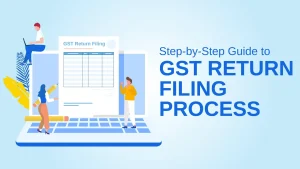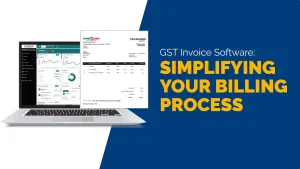Goods and Services Tax (GST) is a comprehensive indirect tax that has replaced many other indirect taxes in India. GST applies to the supply of goods and services, making it a critical aspect of business compliance. Among the various types of GST returns, the Nil GST return holds a special place. Understanding the regulations surrounding Nil GST returns is essential for businesses to ensure they remain compliant and avoid penalties. This article will explore in detail How Many Times Nil GST Return Acceptable and provide comprehensive information on the subject.
What Is a Nil GST Return?
A Nil GST return is a type of GST return filed by a registered taxpayer for a specific tax period when there have been no sales or supplies and no GST liability to report. In essence, it is a declaration that no business transactions have occurred during the period for which the return is being filed. Filing Nil GST returns is mandatory, even if there are no transactions, as it indicates to the tax authorities that the business is still active but has had no taxable activity during the period.
Importance of Filing Nil GST Returns
Filing Nil GST returns is crucial for several reasons:
- Ensures Compliance: Filing returns, including Nil returns, is a legal requirement under GST laws. Even in the absence of transactions, submitting a return ensures that the business remains compliant.
- Avoids Penalties: Non-filing of returns can lead to penalties and fines. Filing Nil returns helps avoid these financial penalties.
- Maintains Active Status: Filing returns, even when they are Nil, helps maintain the active status of the GST registration, indicating that the business is still operational.
- Provides an Audit Trail: Regular filing of returns, including Nil returns, provides a continuous audit trail, which is important for transparency and record-keeping.
How Many Times Nil GST Return Acceptable?
Frequency of Filing Nil GST Returns
The Nil GST return can be filed for every tax period in which there are no transactions. The frequency of filing depends on the type of GST return and the taxpayer’s filing requirements:
- GSTR-1: This return is for outward supplies and is typically filed either monthly or quarterly. If there are no outward supplies in a period, a Nil GSTR-1 can be filed for that period.
- GSTR-3B: This is a monthly summary return. A Nil GSTR-3B can be filed if there are no transactions in a given month.
- GSTR-4: For taxpayers under the composition scheme, GSTR-4 is filed annually. A Nil GSTR-4 can be filed if there are no transactions throughout the financial year.
- GSTR-9: This is the annual return for regular taxpayers. A Nil GSTR-9 can be filed if there have been no transactions throughout the entire financial year.
No Limit on Nil GST Returns
There is no specific limit on the number of times a Nil GST return can be filed. As long as the taxpayer has no transactions to report, Nil returns can be filed for consecutive periods without any restrictions. However, consistently filing Nil returns without any taxable activity might attract scrutiny from GST authorities.
Steps to File a Nil GST Return
Filing a Nil GST return is straightforward and can be done online through the GST portal. Here are the steps to follow:
- Login to the GST Portal: Use your credentials to log in to the official GST portal.
- Select the Return Form: Choose the appropriate return form (GSTR-1, GSTR-3B, etc.) from the dashboard.
- Fill in Details: Since it is a Nil return, there will be minimal data to enter. Confirm that there are no transactions.
- Submit and File: Review the form, submit it, and then file the return. An acknowledgment will be generated upon successful filing.
Penalties for Non-Filing Nil GST Returns
Non-filing of Nil GST returns can result in penalties and late fees. The late fee for not filing a Nil GSTR-3B, for instance, is Rs. 20 per day (Rs. 10 each for CGST and SGST). It is essential to file returns on time to avoid these penalties.
Common Mistakes to Avoid When Filing Nil GST Returns
- Assuming No Return is Required: Some businesses mistakenly believe that if there are no transactions, no return is needed. This is incorrect; Nil returns must still be filed.
- Incorrect Details: Even in Nil returns, ensure that all details are correct to avoid any discrepancies.
- Missing Deadlines: It is crucial to file returns within the due dates to avoid penalties.
Advantages of Filing Nil GST Returns
- Maintains Compliance: Regularly filing returns, including Nil returns, keeps the business compliant with GST regulations.
- Avoids Penalties: Filing Nil returns on time helps avoid late fees and penalties.
- Keeps GST Registration Active: Continuous filing of returns maintains the active status of GST registration, which is crucial for ongoing business operations.
- Simplifies Future Filings: Regular filing ensures that the process is streamlined, making future filings easier and quicker.
How to Correct Mistakes in Filed Nil GST Returns
If a mistake is made in a filed Nil GST return, corrections can be made in subsequent returns. It is essential to be cautious and ensure accuracy to avoid complications.
- Identify the Mistake: Review the filed return and identify the error.
- Amend in the Subsequent Return: Make necessary amendments in the next filing period’s return.
- Consult GST Helpdesk: If needed, consult the GST helpdesk for guidance on rectifying errors.
The Role of GST Practitioners in Filing Nil GST Returns
GST practitioners can assist businesses in filing Nil returns accurately and on time. They provide expert advice, ensuring compliance and avoiding penalties. Engaging a GST practitioner can be beneficial for businesses with limited understanding of GST regulations.
Practical Tips for Filing Nil GST Returns
Set Reminders for Filing Deadlines
One practical tip is to set reminders for filing deadlines. Use a calendar or digital reminder system to keep track of the due dates for your GST returns. This helps ensure that you never miss a deadline and remain compliant.
Use Professional Assistance
Consider engaging the services of a GST practitioner. They can provide expert advice and assist with the filing process, ensuring that your returns are accurate and submitted on time. This can be particularly beneficial if you have limited knowledge of GST regulations.
Regularly Review Your Records
Even when filing Nil returns, it is important to regularly review your business records. This helps ensure that all information is accurate and up to date. Regular reviews can also help identify any potential issues before they become problematic.
Conclusion
Filing Nil GST returns is a mandatory compliance requirement for registered businesses in India. There is no limit to how many times a Nil GST return can be filed as long as there are no transactions to report. Regular and timely filing of Nil returns ensures compliance with GST laws, avoids penalties, and maintains the active status of GST registration. Understanding the importance and process of filing Nil GST returns is crucial for businesses to manage their tax obligations effectively. By following the guidelines and best practices outlined in this article, businesses can ensure they remain compliant with GST regulations and avoid unnecessary penalties.
Also Read
- GST Return Filing Process Step by StepIn today’s fast-paced business world, it’s essential for every company to follow tax rules. One significant tax system in India is Goods and Services Tax (GST). Its goal is to make taxes simpler and more consistent across the country’s economy.… Read more: GST Return Filing Process Step by Step
- Smooth Transition: NOC Format for GST RegistrationIn the world of business, transitions are inevitable. Whether it’s expanding your operations, changing your business structure, or even just registering for new licenses and permits, each step requires careful consideration and adherence to legal requirements. When it comes to… Read more: Smooth Transition: NOC Format for GST Registration
- GST Registration Cancellation Letter FormatGoods and Services Tax (GST) is a comprehensive indirect tax levied on the supply of goods and services in India. Under the GST regime, businesses are required to register themselves to comply with tax regulations. However, there might be instances… Read more: GST Registration Cancellation Letter Format
- GST Invoice Software: Making Billing EasyIn today’s busy world of business, being efficient is super important. One big thing that needs to be super efficient is billing. With new technology, old-fashioned manual billing is out of date and can make a lot of mistakes. That’s… Read more: GST Invoice Software: Making Billing Easy
Frequently Asked Questions
How Many Times Nil GST Return Acceptable?
A Nil GST return can be filed for as many consecutive periods as necessary when there are no transactions to report. There is no limit on the number of times a taxpayer can file a Nil return if there is no business activity. Each filing period, whether monthly, quarterly, or annually, allows for a Nil return if no taxable transactions have occurred. However, consistently filing Nil returns without any business activity might attract scrutiny from GST authorities, who could question the ongoing operational status of the business. Therefore, it’s important to ensure that Nil returns accurately reflect the business’s situation.
How many times can I file a Nil GST return consecutively?
You can file a Nil GST return for as many consecutive periods as needed. There is no limit on the number of times you can file a Nil return if there are no transactions. Each filing period, whether monthly, quarterly, or annually, allows for a Nil return if no business activity has occurred. However, consistently filing Nil returns may attract scrutiny from GST authorities, who may inquire about the lack of transactions over an extended period.
Is there a penalty for not filing Nil GST returns on time?
Yes, there is a penalty for not filing Nil GST returns on time. Even if there are no transactions, failing to file a return by the due date can result in a late fee of Rs. 20 per day (Rs. 10 each for CGST and SGST). Over time, these penalties can accumulate, leading to significant charges. It’s important to file Nil returns promptly to avoid these unnecessary financial burdens and maintain good compliance status.
What happens if I consistently file Nil GST returns?
If you consistently file Nil GST returns, GST authorities might scrutinize your business. They may question why there is a lack of transactions over an extended period. While there is no limit on how many Nil returns you can file, consistent filing without taxable activity might prompt authorities to investigate whether your business is still operational or if there are any compliance issues. It’s essential to ensure that Nil returns accurately reflect your business’s situation.
Can a business file Nil returns for GSTR-1, GSTR-3B, and GSTR-4?
Yes, a business can file Nil returns for GSTR-1, GSTR-3B, and GSTR-4 if there are no transactions in those periods. GSTR-1 and GSTR-3B are typically filed monthly or quarterly, while GSTR-4 is for composition scheme taxpayers and is filed annually. Filing Nil returns for these forms is acceptable when there have been no sales, purchases, or other taxable activities during the respective periods.
What steps are involved in filing a Nil GST return online?
Filing a Nil GST return online involves several straightforward steps:
Log in to the GST portal with your credentials.
Select the appropriate return form (GSTR-1, GSTR-3B, etc.).
Confirm that there are no transactions to report.
Enter the required details, if any.
Submit the form and file the return.
Save the acknowledgment receipt for your records. These steps ensure that your Nil return is accurately filed and recorded.
Are Nil GST returns mandatory even with no business activity?
Yes, filing Nil GST returns is mandatory even if there is no business activity during the tax period. This requirement helps maintain compliance with GST laws and indicates to the authorities that the business is still operational. Not filing a Nil return when there are no transactions can lead to penalties and affect the active status of your GST registration, making it crucial to file these returns regularly.
What information is needed to file a Nil GST return?
Filing a Nil GST return requires minimal information since there are no transactions to report. You need to confirm that there have been no sales, purchases, or other taxable activities during the period. Ensure that all mandatory fields in the return form are correctly filled, even if they indicate zero activity. After confirming the absence of transactions, submit the form and file the return through the GST portal.
How does filing Nil GST returns affect GST registration status?
Filing Nil GST returns helps maintain the active status of your GST registration. Regular filing, even when there are no transactions, indicates that the business is still operational and compliant with GST regulations. Failure to file returns can lead to penalties and may eventually result in the suspension or cancellation of your GST registration. Therefore, it is important to file Nil returns to keep your registration active and in good standing.
Can a GST practitioner help with filing Nil GST returns?
Yes, a GST practitioner can assist with filing Nil GST returns. They can ensure that the returns are filed accurately and on time, helping you stay compliant with GST regulations. Engaging a GST practitioner can be especially beneficial if you are unfamiliar with the filing process or have limited knowledge of GST laws. They provide expert advice and handle the filing process, reducing the risk of errors and penalties.





